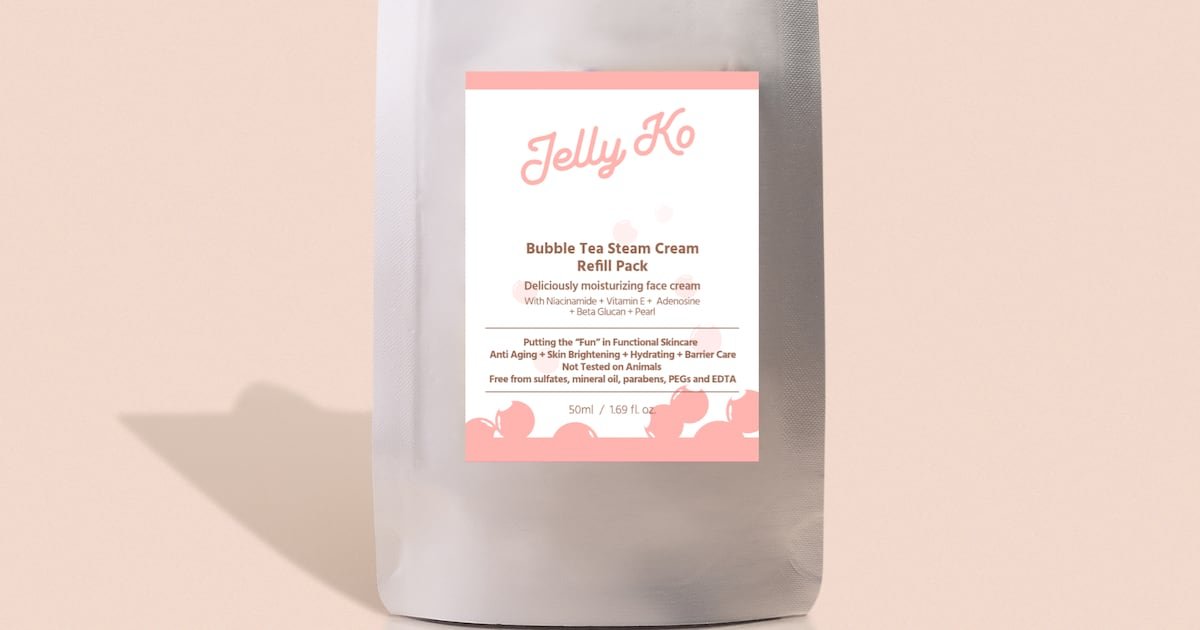Funding & Investment in Travel
Ele.me co-founder launches senior travel startup, raises over $13 million in Series A funding

Gongbilin, a travel service brand focused on organizing group trips for retirees, has recently completed its Series A funding round.
The company was founded by Jiashen Kang, co-founder of Ele.me and a former executive at Alibaba Group. Gongbilin marks his new entrepreneurial venture following his departure from Alibaba.
Amid growing investor interest in the aging population sector, Gongbilin has completed two rounds of financing.
In 2021, it secured an angel funding round from Gaorong Capital, Yuanjing Capital, and other investors.
The recent Series A round, led by Hong Kong Concept Capital, raised over RMB 100 million(over USD 13.9 million), primarily in US dollars.
According to the China National Committee on Aging, by 2040, seniors may account for 50% of all domestic travelers in China.
Capitalizing on this growing trend, Gongbilin has emerged as a rising star in the senior travel market, thanks to its unique positioning and innovative group travel services tailored for retirees.
As of December 2024, Gongbilin’s travel itineraries cover four continents (Asia, Europe, North America, and Oceania). The company has partnered with over 1,000 hotels, guesthouses, and rural lodges across Jiangsu, Zhejiang, Shanghai, and Anhui, making it the largest group travel brand for retirees in China.
Funding & Investment in Travel
Startups Supplying Scarce Materials And Rare Earth Elements See Abundant VC Funding

It’s well known that scaling cutting-edge technologies and battery production requires supply-constrained materials such as lithium, cobalt and nickel, as well as rare earth elements sourced from just a few locations on the planet.
Tech giants, automakers and other industrial players have long been cognizant of the supply chain risks. And recent headlines show concerns increasingly spilling over into geopolitics.
Startups haven’t been sitting this one out either. In the past few quarters, a growing roster of venture-backed companies has secured funding for areas including battery and magnet recycling, rare earth-focused mining technology, and even extracting materials from space.
Collectively, they’ve raised billions to date, including some large recent rounds. To illustrate, we used Crunchbase data to put together a list of a dozen companies, most funded in the past year, with a mission of supplying scarce materials through recycling or at their original source.
Most venture money going to recycling
The largest investment recipients are focused on recycling, looking to extract scarce materials from devices, scrap, batteries and industrial machines no longer in use.
In this arena, the two most heavily funded startups — Massachusetts-based Ascend Elements and Nevada-based Redwood Materials — are both focused on batteries and have been around a while. Together, they’ve pulled in nearly $3 billion in equity funding and over $1 billion in debt financing to date.
Notably, however, both companies secured most of their funding between 2021 and 2023. That coincided with a more bullish period overall for cleantech equity funding. Since then, sustainability-focused investment has trended lower, with U.S. investors in particular seeing impacts from the Trump administration dialing back support for clean energy initiatives.
Outside the U.S., meanwhile, we’ve seen some more recent, sizable rounds around critical materials recycling.
Out of Canada, Cyclic Materials announced in June that it raised $25 million to build a rare earth recycling facility in Kingston, Ontario. It will take magnet-rich scrap and retired industrial products to recycle rare earth elements used in EV motors, wind turbines and consumer devices. Per Cyclic, it’s an undertapped market, as today, less than 1% of rare earth elements are recycled.
On the earlier-stage side, two German companies also raised good-sized financings. Cylib, which develops technology to draw critical raw materials from end-of-life batteries, picked up a $64 million Series A last spring. And at seed-stage, Munich-based Tozero secured $12 million for a plant to recover raw materials from recycled lithium-ion batteries.
Mining attracts capital too, following MP Material’s footsteps
Startup capital is also flowing to ventures focused on mining critical materials.
Before looking at the latest funding picks, however, it seems worth pointing out that MP Materials — the company generating headlines of late around rare earth mining — is itself a stock market success story with some Silicon Valley roots.
Shares of Las Vegas-based MP shot higher this month following news that the U.S. Defense Department agreed to buy an equity stake in the company, which operates the country’s only rare earth mine in Mountain Pass, California. A few days later, Apple announced a $500 million commitment to buy rare earth magnets developed at an MP Materials’ facility in Fort Worth, Texas.
Notably, MP was one of the earlier companies to ride the SPAC boom, making its public market debut in 2020 through a merger with a blank-check company. The deal included an equity investment from backers including venture capitalist and onetime “SPAC king” Chamath Palihapitiya.
More recently, we’ve seen a few startups nab venture and debt financing around mining efforts and technologies targeting scarce metals.
Montreal-based Torngat Metals secured $120 million in debt financing last month from government sources for a rare earth mining project in Strange Lake, located in Quebec’s northernmost region. It touts the project, which includes “detailed caribou avoidance procedures,” as a strategically important national initiative in a time when Chinese domination of heavy rare earth metals threatens others’ ability to build and source high-performance magnets.
Phoenix Tailings, based in Woburn, Massachusetts, also attracted investors’ interest, pulling in $76.4 million in fresh financing this year, per a May securities filing. The company has developed a process to extract valuable metals and rare earth elements from mining waste.
Exits next?
Major U.S. market indices are trading near all-time highs these days, so it’s looking like a good time for public companies in a lot of industries. But those tied to sourcing of rare metals and battery materials are riding particularly high.
MP Materials, for instance, had a recent market cap around $10 billion — its highest to date. Rare earth stocks more broadly are also sharing in the enthusiasm.
Could IPOs and acquisitions for the most heavily funded companies tied to sourcing scarce materials be next? These aren’t likely to be the fastest-moving spaces for dealmaking, but at least for now some momentum is on their side.
Related Crunchbase query:
Related reading:
Illustration: Dom Guzman
Stay up to date with recent funding rounds, acquisitions, and more with the
Crunchbase Daily.
Funding & Investment in Travel
New travel fees for Brits heading to Mallorca

British travellers will soon need to fork out 7€ for an ETIAS permit to visit popular holiday destinations like Spain though the system’s implementation has been pushed back to 2027. The fee will only apply to tourists aged between 18 and 70, whilst younger and older visitors won’t face any charges.
Funding & Investment in Travel
Jelly Ko expands refill options on the back of strong sales and demand

The in-house brand of Style Story, an Australia-based online retailer of South Korean beauty products, has added a fourth refill product to its portfolio.
Its global bestseller, Bubble Tea Steam Cream, recently joined Dewy Glaze Toner, Be Jelly Overnight Dream Serum, and White Truffle Souffle Serum in having a 50ml version.
“Bubble Tea Steam Cream is the product that put Jelly Ko on the map, and it is now available in a convenient refill pouch that’s perfect for topping up your empty jar or packing in your carry-on luggage.
“Refills are performing really well for us. Last month, across our sales channels, refill packs made up almost 40% of total sales for Bubble Tea Steam Cream, which is our hero SKU and most repurchased product. That is a huge adoption rate and shows that customers are not only repurchasing, but actively opting for the more sustainable option,” Lauren Lee, founder of Jelly Ko and Style Story, told CosmeticsDesign-Asia.
In fact, the travel-friendliness of the refill packs was pointed out to Lee by customers.
“Many started using the refill packs as travel companions because they are resealable, lightweight, and easy to pack due to its flat packaging. It wasn’t actually something that we realised when we originally designed them, but now that we’ve seen how people are using them, we have adopted that into our messaging as well.
“It makes sense because traditional cosmetics can be bulky, breakable, heavy, and just a bit annoying to cart around, even if they are travel-sized. These refill packs take all the fuss out of travelling with your go-to skin care products.”
Going forward, Jelly Ko plans to continue growing its refillable offerings.
“We will be adding a refill version for our Cherry Blossom Sleeping Mask, which will also double as a travel pack, in the next production run. As for dedicated travel-sized products, we are not planning any at this stage. We currently offer sachet samples and these refill packs, which fill the gap for now.”
Smooth like bubble
Jelly Ko’s Bubble Tea Steam Creamis claimed to be the world’s first bubble tea skin care, which has sold out six times since its launch in 2020.
Infused with collagen, panthenol, probiotics, squalane, and four types of hyaluronic acid, it is a nourishing yet lightweight moisturiser that “replaces oil, serum and cream in one step”.
Inspired by the popular beverage, this cream is fast-absorbing, and delivers deep hydration and buttery-soft smoothness targeted at improving dark spots, blemishes, and visible signs of ageing.
According to the brand, it helps to refine texture and tone for all skin types and ages; smooths and firms skin for a more even, radiant complexion; and does not contain additives, such as artificial fragrances, dyes, sulphates and parabens, that may trigger reactions.
In addition, the newly launched refillable pouch is said to use 90% less plastic, glass and paper, contributing to reduction of carbon emissions and packaging waste.
-

 Brand Stories11 hours ago
Brand Stories11 hours agoBloom Hotels: A Modern Vision of Hospitality Redefining Travel
-

 Brand Stories11 hours ago
Brand Stories11 hours agoHow Olive Group of Hotels Is Redefining Wellness Travel in India—And Why the World Is Watching
-

 Destinations & Things To Do1 day ago
Destinations & Things To Do1 day agoUntouched Destinations: Stunning Hidden Gems You Must Visit
-

 AI in Travel1 day ago
AI in Travel1 day agoAI Travel Revolution: Must-Have Guide to the Best Experience
-

 Brand Stories2 weeks ago
Brand Stories2 weeks agoVoice AI Startup ElevenLabs Plans to Add Hubs Around the World
-

 Brand Stories1 week ago
Brand Stories1 week agoHow Elon Musk’s rogue Grok chatbot became a cautionary AI tale
-

 Asia Travel Pulse2 weeks ago
Asia Travel Pulse2 weeks agoLooking For Adventure In Asia? Here Are 7 Epic Destinations You Need To Experience At Least Once – Zee News
-

 AI in Travel2 weeks ago
AI in Travel2 weeks ago‘Will AI take my job?’ A trip to a Beijing fortune-telling bar to see what lies ahead | China
-

 Brand Stories2 weeks ago
Brand Stories2 weeks agoChatGPT — the last of the great romantics
-

 Brand Stories2 weeks ago
Brand Stories2 weeks agoHumans must remain at the heart of the AI story

You must be logged in to post a comment Login